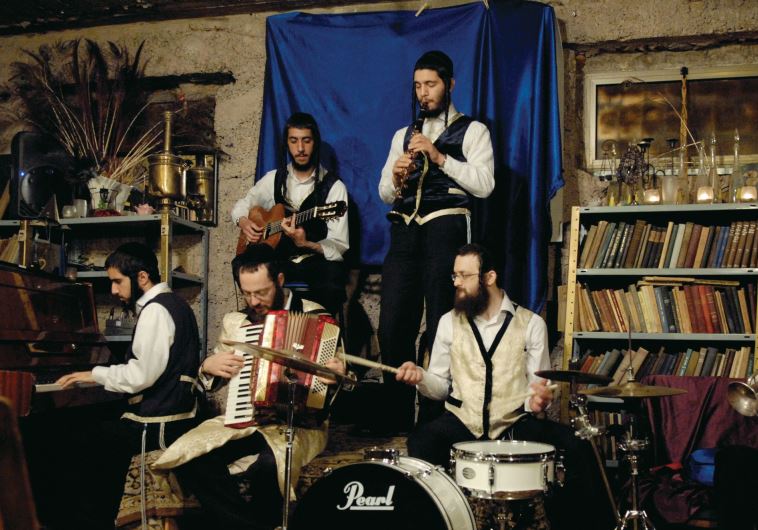For Torah shall come forth from Zion
Avrum Leib Burstein, head of the Jerusalem Klezmer Association, hopes to make the city the Yiddish cultural capital of the world.
 Avrum Lieb Burstein plays the accordion with a klezmer band at Burstein’s Krechme(photo credit: LOULOU D’AKI)Updated: Read More
Avrum Lieb Burstein plays the accordion with a klezmer band at Burstein’s Krechme(photo credit: LOULOU D’AKI)Updated: Read More